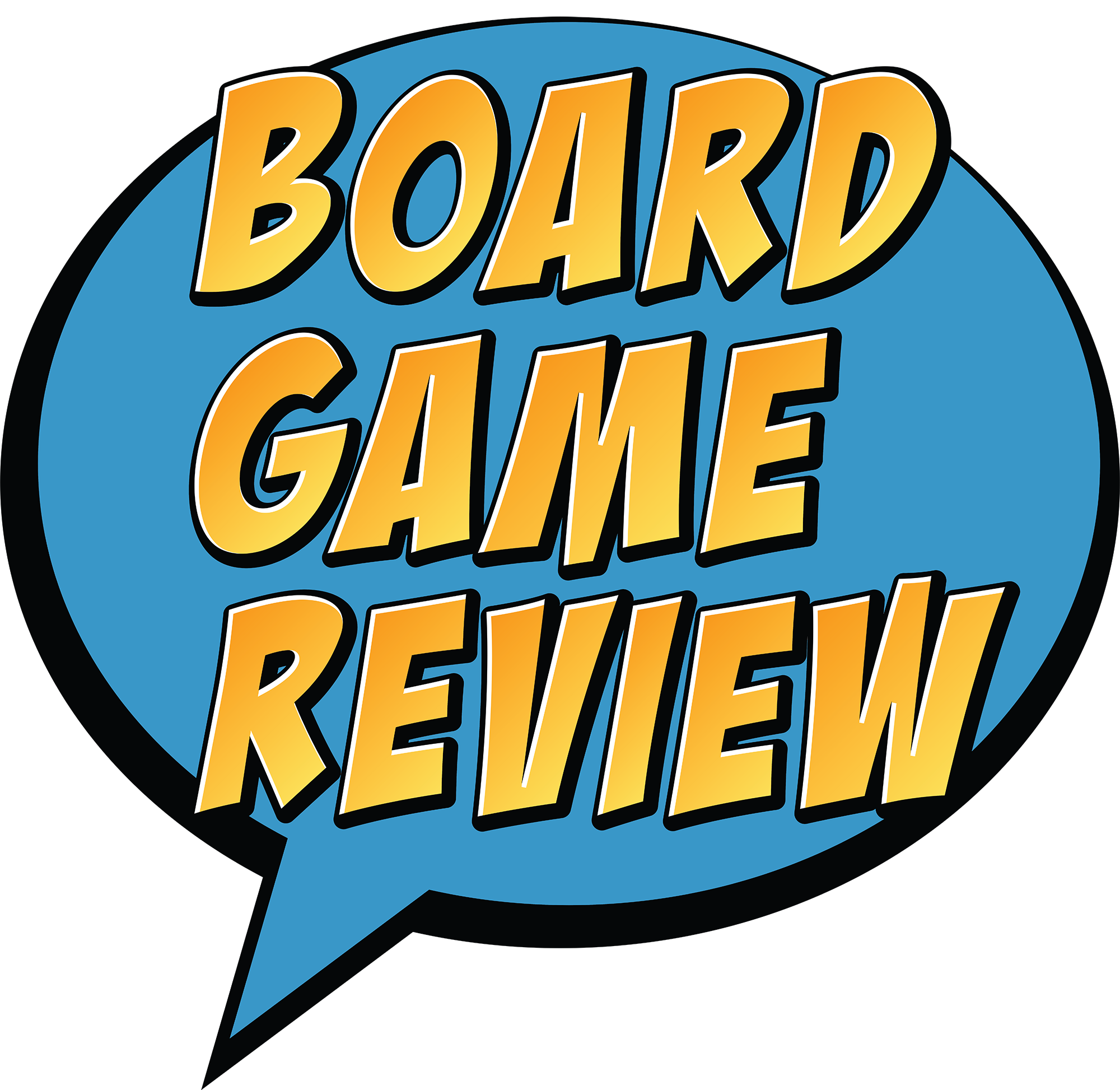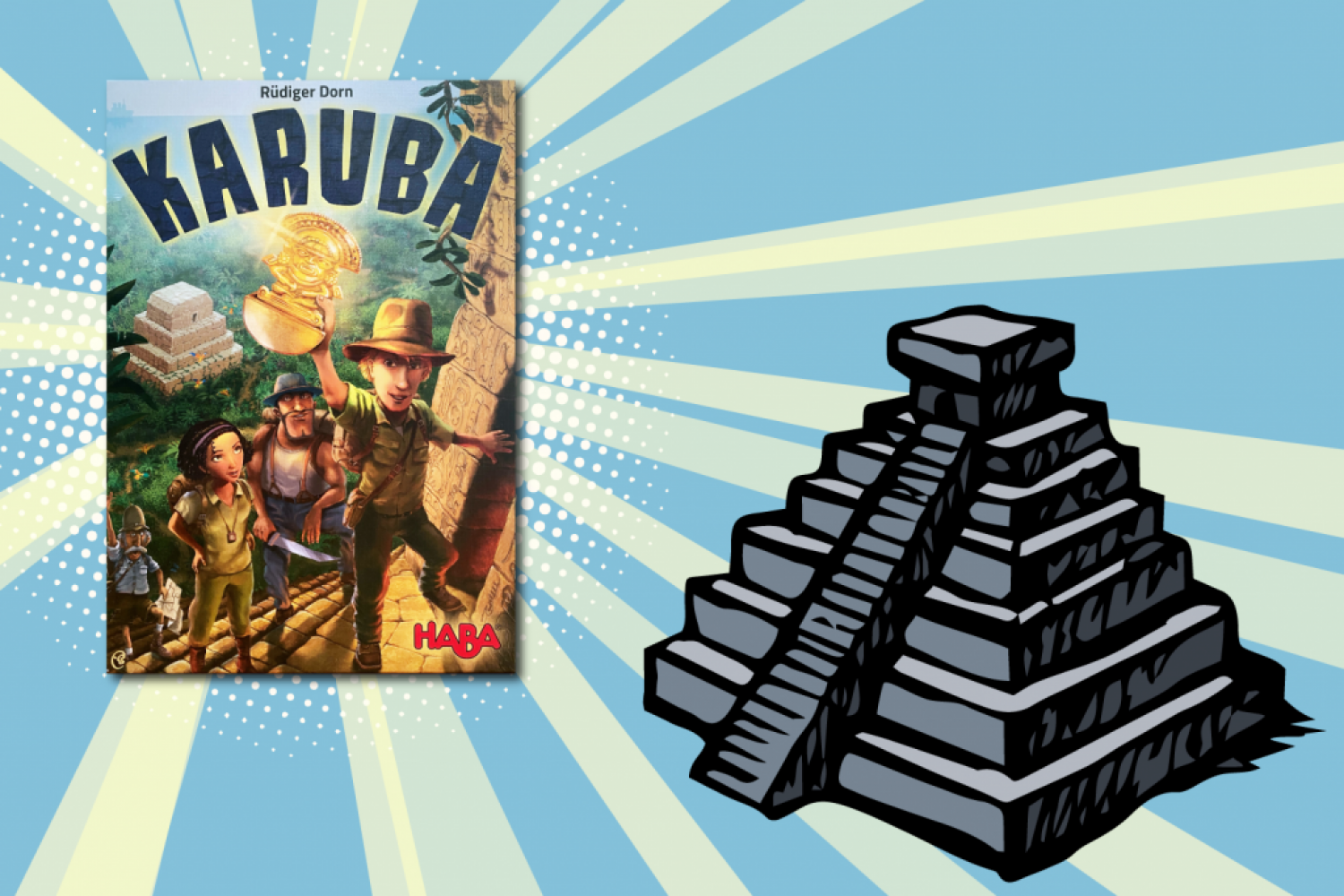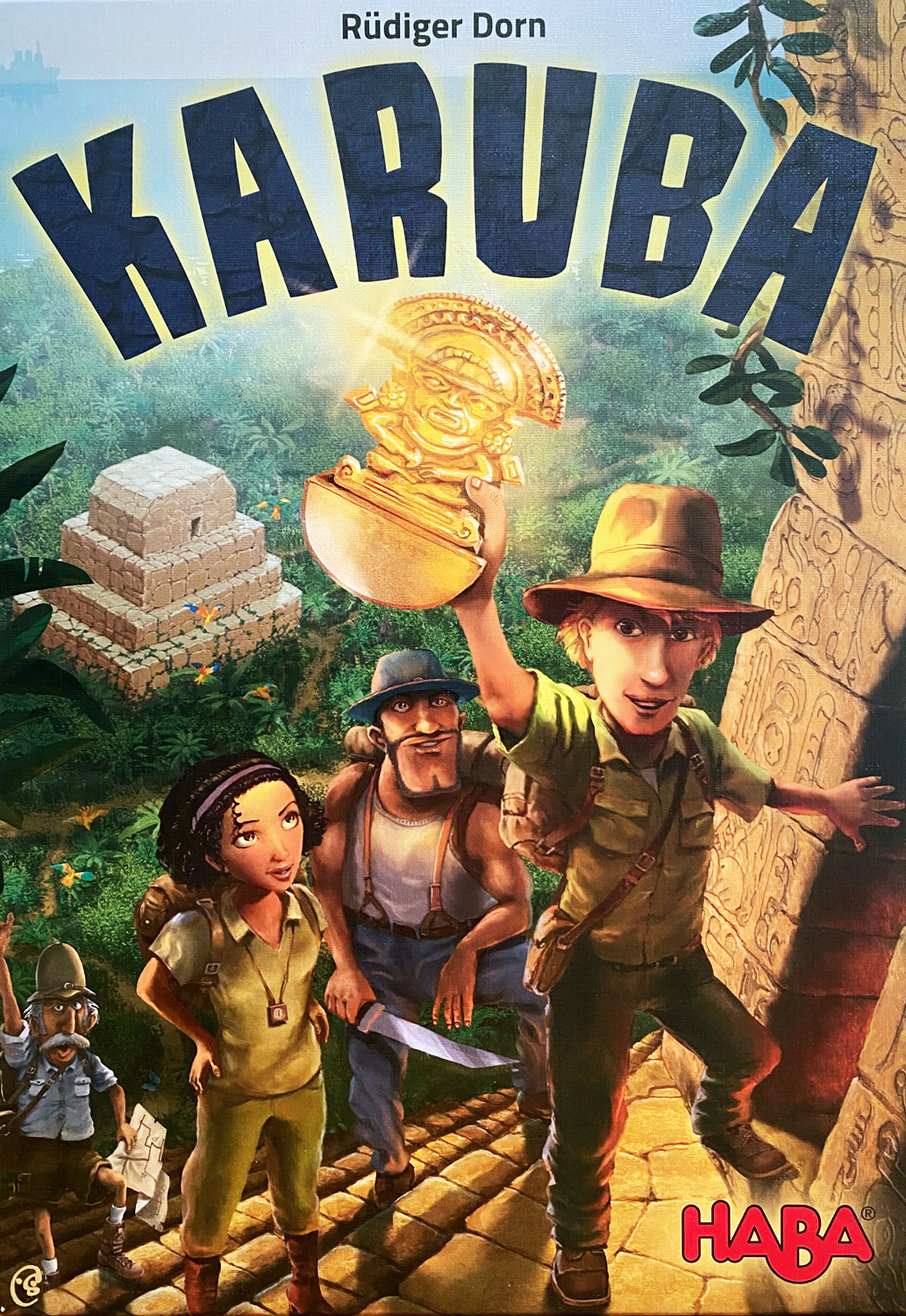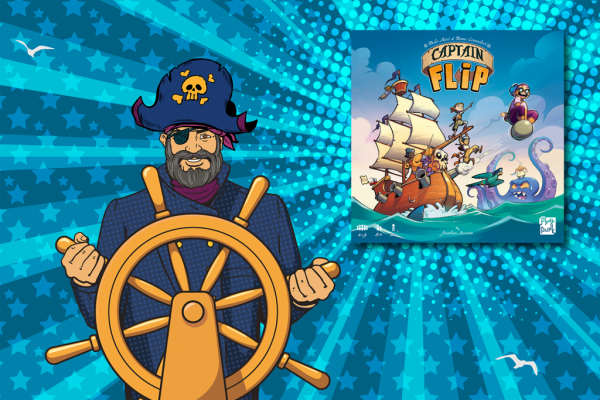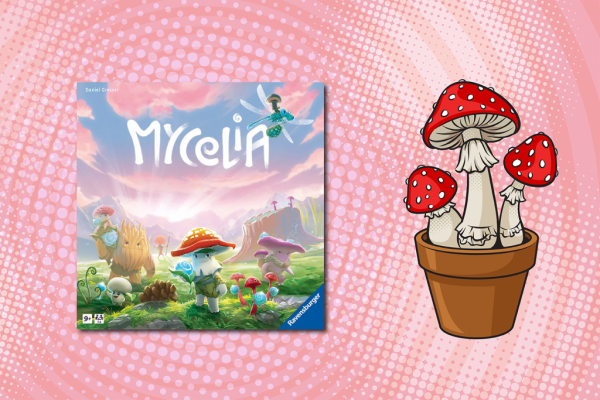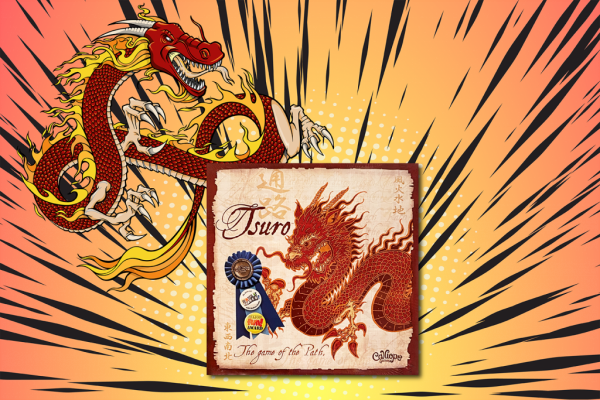Karuba Review
Advert: we were gifted Karuba by Amaroni, this has not affected our opinion.
Following in the footsteps of the likes of Indiana Jones and Lara Croft, here I am standing on the sandy beaches of Karuba island. Caws and screeches of exotic birds echo around me as I stare into the dense thicket of jungle. Radios crackle to life as my three fellow treasure hunters confirm they are on the beach too.
Their next communication also confirms my suspicions, other treasure hunters are arriving on the island at the same time. This will be a race to clear paths through the jungle and get to the hidden temples first. After all who wants to be the last to uncover the undiscovered treasures lying within. There is no time to waste… let’s review the tile-laying puzzle game Karuba!
Setup
To setup Karuba, each player has their own playing board. All but one player, lays out their tiles in number order around the edge of their board. Players then take it in turns to decide which beach space a certain colour meeple is placed and where the corresponding temple should be placed in the jungle. These have to be at least three spaces apart from each other. Every player places the same colours on their board in the same places. So before the game begins you should have identical boards.
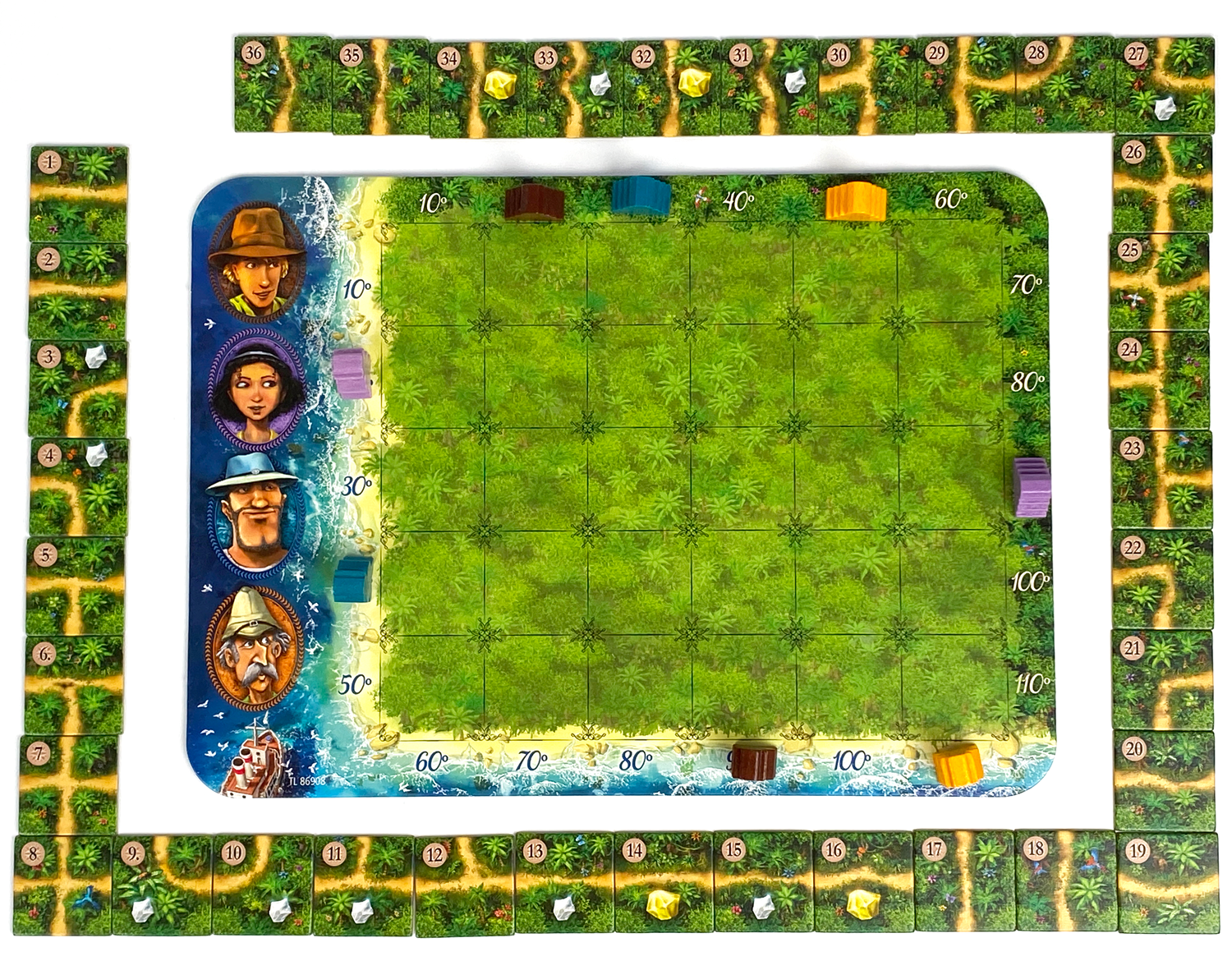
©boardgamereview.co.uk
Gameplay
To win the game you need to be the player with the most points. Points are awarded for collecting gems along paths and for reaching temples to claim treasure.
The player with their tiles still jumbled-up is overall team leader. They will randomly draw one of their face down tiles and announce the number. This tile will be used by everyone and can be placed anywhere on their board. It doesn’t have to be placed touching another tile or an edge. The idea being that you plan a route for the explorer meeple to get to the matching coloured temple. Getting to the temple first will gain you the most points, but there is treasure available for every player who gets there.
Alternatively, the tile can be discarded for movement, in this instance you can move one meeple up to the number of exits on a tile. For example if the tile is a straight line, you can move up to two squares, if the tile is a crossroads you can move up to four. When moving you can only move one meeple and you cannot overtake or pass another explorer. Players therefore need to carefully consider their tile placement, routes and movements.
Some tiles display a golden nugget or diamond gem on them. When these tiles are placed the corresponding gem is placed on the tile too. If your explorer stops on this square they collect it. Gold is worth two points and diamonds one point at the end of the game.
The game ends when all tiles have been drawn by the team leader or by one player claiming treasure from each of the temples.
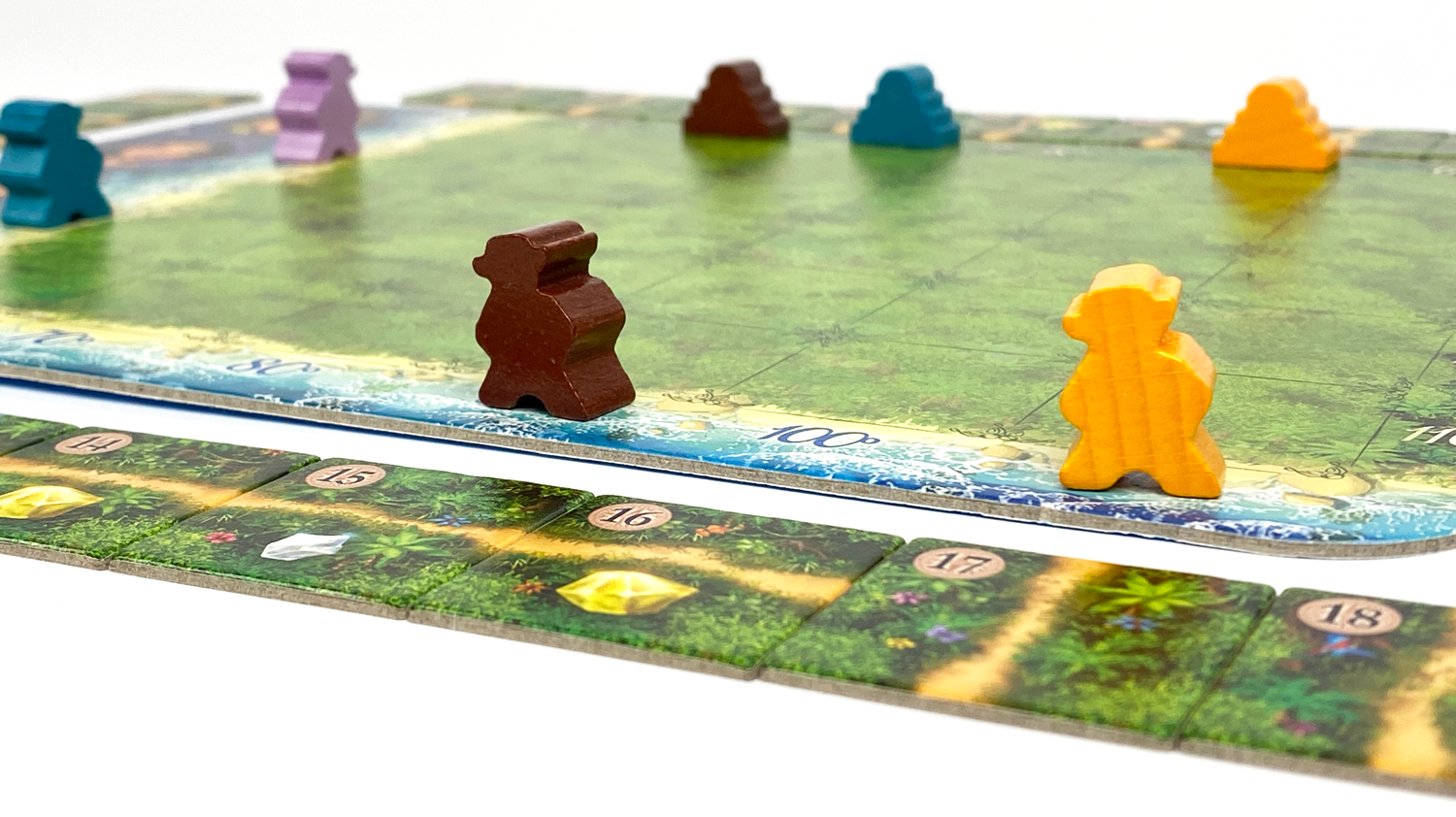
©boardgamereview.co.uk
What it’s like
Okay let’s get the negative bit out the way first. Ordering your tiles around your board is an unavoidable bore. Finding a silver cloud in this process, the setup does give you an opportunity to have a quick chat before immersing yourself in the game!
Playing Karuba is quite a solitary experience, you cannot scupper your opponents and you can therefore only really concentrate on your own board. You will glance at what your opponents are doing if choosing which temple to claim but that is about the extent of it. The team leader has the additional benefit of shouting out some numbers like a bingo caller!
There should be few cases of analysis paralysis due to the lighter gameplay. The all-play mechanic, where everyone is playing simultaneously, enables the game to be played at a good pace.
As you cannot influence other player’s boards, there is no one to blame but yourself when you accidently cut one of your routes off. Similarly if you cannot move an explorer along the track as it is unbuilt or blocked. The feeling is akin to your route to a city in Ticket to Ride being taken before you could claim it, but it being entirely your fault!
The random drawing of tiles coupled with the differing placement of explorers and temples at the start, really helps to keep each game fresh and different.
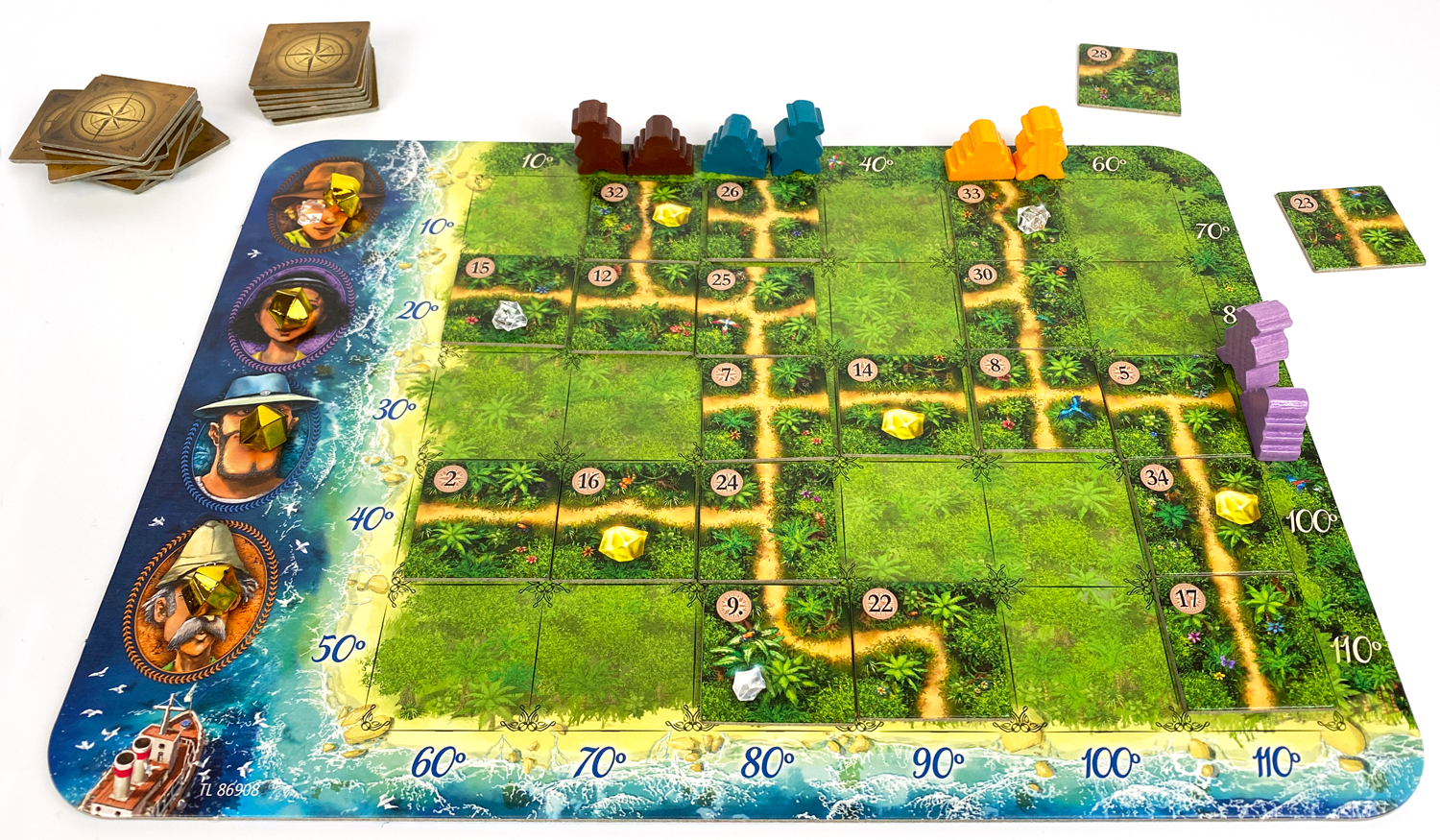
©boardgamereview.co.uk
Table Presence
The artwork is thematic. The tiles are chunky and very reminiscent of Carcassonne road tiles. The meeples and temples are exactly what you would expect! Perfectly good quality but nothing to jump up and down about!
I’m surprised at the colour choices of the different meeples and temples. They are unusual choices, and I am not sure how those suffering with colour vision deficiency would get on with it. I fear the brown and orangey colours might be difficult to distinguish. A detail or symbol to each would’ve solved this.
The temple treasure tokens have a nice Mayan feel to them. Unfortunately, these are completely overshadowed by the gold and gems that glitter on the board.
There is a little bit of single use packaging in the box which hopefully won’t be there in future printings.
Finally, the rules are very good, that’s HABA for you!
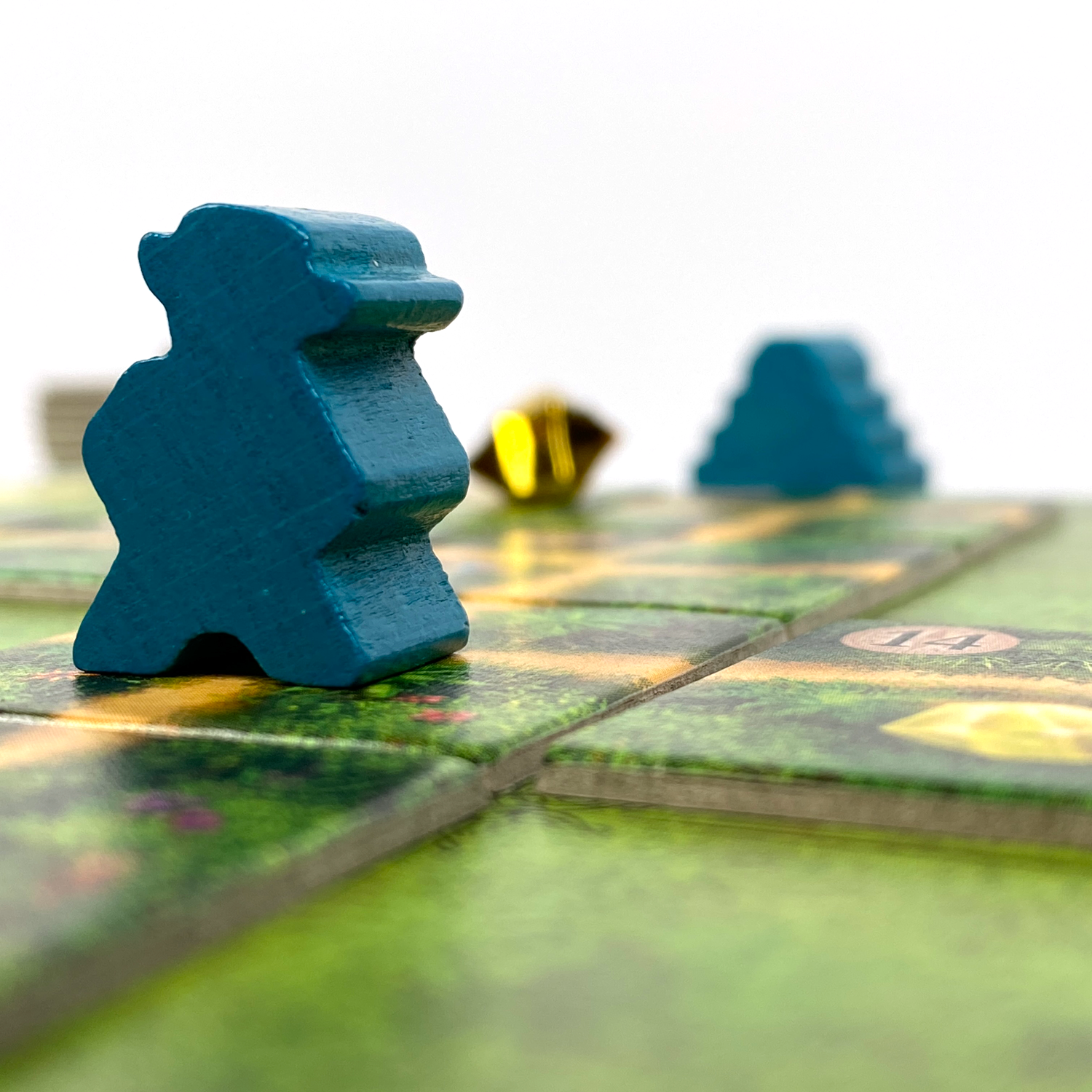
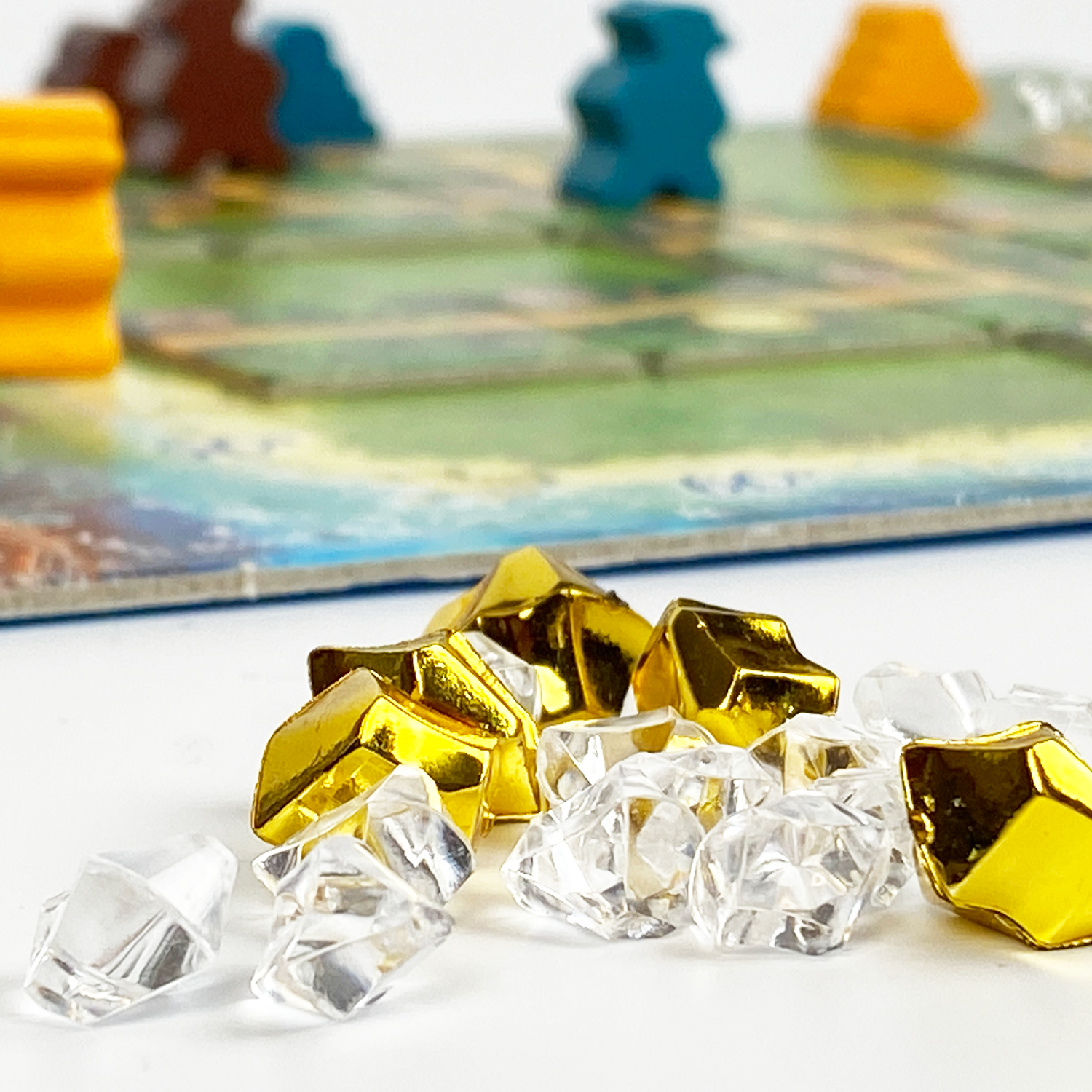
©boardgamereview.co.uk
What the kids thought
Shelley (21 again): I love the sparkly gems. It would work well over video call if all players either owned it or had access to the relevant components that they would need.
Harrison (12): I enjoy playing it, except for that time I lost horribly!
George (9): I like the strategy of placing tiles to get to the treasure.
Final thoughts on Karuba
Karuba is quite a lightweight game. Some may see that as a negative, but its quick setup and play time make it a great family option for 2-4 players. As a result it will likely get pulled off the shelf more often than the meatier titles.
George (9) beat me, my wife, and his older brother on his first two plays. This reinforces how great Karuba is as a family board game. The rules can be taught in minutes and this simplicity of gameplay makes it accessible, and therefore ideal for, those new to board gaming too. There is enough of a puzzle to entertain more seasoned board gamers too, but Karuba will likely be considered a ‘filler’ option for them.
Karuba was certainly not on my radar until it was offered to me for review by Amaroni. I am so glad it was, as it has been a very pleasant surprise. It is a very satisfying game to play! It comes as no surprise then that this game was nominated for the coveted Spiel des Jahres and Golden Geek awards when it was released.
Key Facts
Number of players: 2 to 4
Board Game Review Recommended Age: 7+
Publisher’s Recommended Age: 8+
Playing Time: 35 minutes
Setting Up and Take Down Time: 3 minutes
Designers: Rüdiger Dorn
Publisher: HABA
RRP: £24.99
Summary
I’ve had a blast playing Karuba with friends and family. They have all enjoyed it! While it may not make your brain hurt in the same way as some of the crunchier titles, sometimes you’re not in the mood for that! In those instances, Karuba is a great choice. For all those reasons Karuba has entered into the Board Game Review Hall of Fame.
-
Artwork and Components
-
Complexity
-
Instructions
-
Interaction
-
Value for Money
Overall
Pros
- Quick and Easy to learn
- Good components
- Works over video call
- Nice puzzle feel to the gameplay
Cons
- Quite a solitary gaming experience
- Ordering tiles at the start of each game
- Frustrating when you accidentally block a path
Need more games?
If you already own Karuba and enjoy it, or are looking for other inspiration, you might also like these similar games:
- Carcassonne
- Little Town
- Quest for El Dorado
- Bandido
Buy Karuba
If you want to buy Karuba after reading our review click on one of our affiliate links below (note there has been no affiliate links until this point)
Reviewer’s Note
For clarity. We don’t get paid for our reviews. However, this game was given to us for review by Amaroni, distributors of HABA in the UK, this has not affected our review in any way.
We may however earn a tincy wincy commission if you buy a game having clicked one of our affiliate links like the one above… this hopefully gives us a bit of pocket money towards hosting costs and new games to review!
As an Amazon Associate I earn from qualifying purchases.
Board Game Review is a brand ambassador for Out of Town Games.
We also are an affiliate of Board Game Prices, a price comparison website for Board Games.
These affiliate advertising programs are designed to provide a means for sites to earn advertising fees by advertising and linking to their websites.
